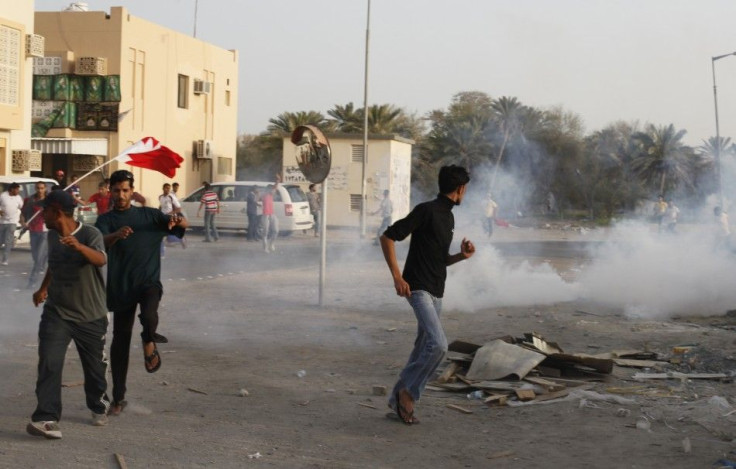Bahrain Bans Protests As Anti-Government Sentiment Rises

Bahrain has banned all public protests Tuesday after more than a year of mass unrest and has threatened to take legal action against organizations that support anti-government movements.
The Bahraini government’s Interior Ministry issued the order, which is the most far-reaching effort to crack down on protesters since it instituted martial law following the outbreak of demonstrations in February 2011 amidst the wave of Arab Spring uprisings.
The Interior Ministry released a statement, saying that the majority of the public was “fed up” with the protests, and "there was a need to put an end to them,” the Associated Press reported, adding that any “illegal rally or gathering would be tackled through legal actions against those calling for and participating in it."
Bahrain’s constitutional monarchy is dominated by the Gulf kingdom’s Sunni Muslim minority, while most of the protesters are among the Shiite Muslim majority, accounting for about 70 percent of the population, according to the AP.
Shiite protesters have demanded more equal representation in senior government posts and in the legislature, where members of the upper house are all appointed by the Sunni monarchy.
The U.S. has maintained support of the Bahraini regime, while calling for the protesters' right to freedom of assembly to be respected in the past.
© Copyright IBTimes 2024. All rights reserved.




















